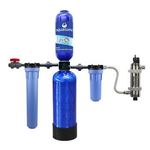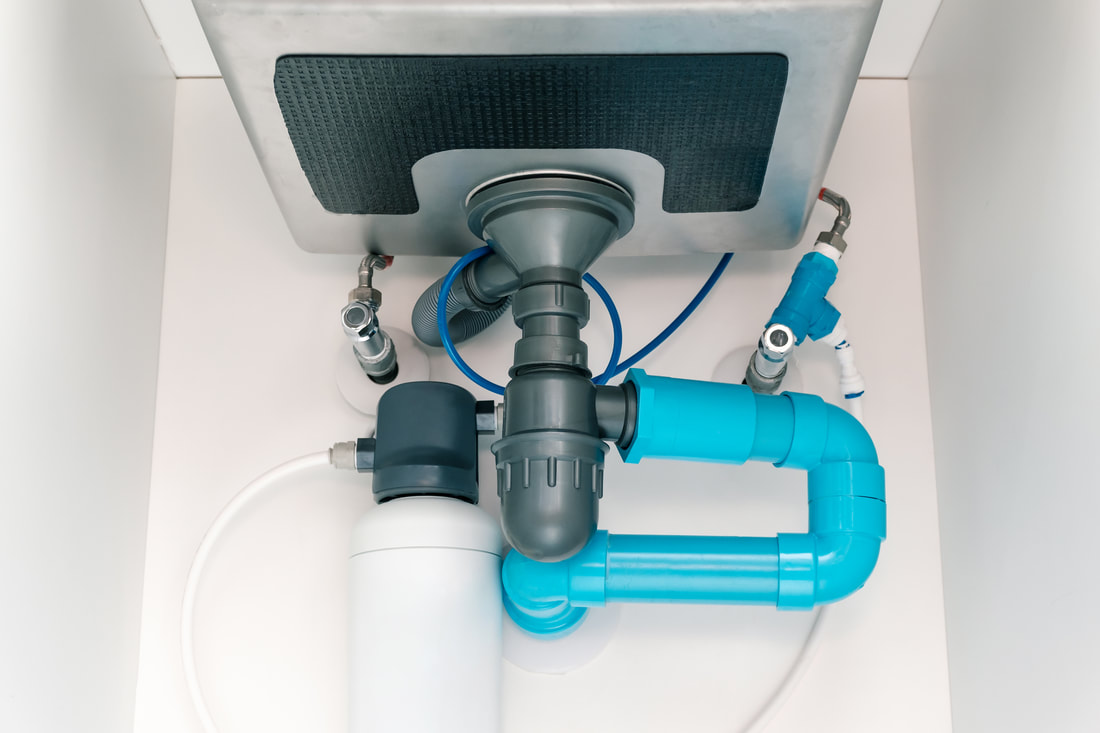|
Water Filtration Systems Boise, ID

Do I Need a Water Softener or a Water Filtration System? That depends on why your are concerned about your water quality. If you have lime scale buildup, traces of rust in your bathtub or toilet, hard water spots on your dishes, then a water softener may solve your problem. If your water smells or tastes bad, a water filter would be your best choice. A water filter also removes industrial contaminates, some bacteria and viruses, and pesticides. If the people using the water have skin sensitivities or health issues, a water filter may be helpful. If you have more questions, feel free to call Boise Valley Plumbing Company at (208)639-0784 or complete the form to your right. Call Now For A Free Consultation & Estimate (208)639-0784 |
Schedule a Master Plumber Now!
1-208-639-0784 |
Water purification systems for homes with and without wells come in several different sizes and types, with a variety of applications, to ensure the water in your home remains as clean and healthy as possible. But deciding which water filtration system is suitable for your home and circumstances can be difficult. For example, do you need to remove iron or other contaminate as they enter the water main, or do you want to improve the quality and flavor of your drinking water? A water softener can improve your water, but there are particulates too small for a water softener. These can affect the odor and flavor of your water.
The professionals at Boise Valley Plumbing have the experience and expertise to help you choose the correct water filtration system for you.
WHICH WATER FILTER IS RIGHT FOR YOU?
Drinking water systems and point-of-use filters are commonplace in Bend, Oregon homes. If you have a well, groundwater can seep into wells through cracks or faulty caps and flood your water with any number of bacteria and microorganisms.
Drinking water systems ensure the water you and your family enjoy every day is free from all odors, tastes, and—most importantly—toxins that are harmful to your health.
Drinking water filters can be installed under the counter or run through your faucet. We call this treating water at its point of use.
Homes with wells often need a filter where the water enters the house before the water softener to remove iron and other contaminants before they enter the water softener or water heater.
COMMON TYPES OF WATER FILTRATION SYSTEMS
The professionals at Boise Valley Plumbing have the experience and expertise to help you choose the correct water filtration system for you.
WHICH WATER FILTER IS RIGHT FOR YOU?
Drinking water systems and point-of-use filters are commonplace in Bend, Oregon homes. If you have a well, groundwater can seep into wells through cracks or faulty caps and flood your water with any number of bacteria and microorganisms.
Drinking water systems ensure the water you and your family enjoy every day is free from all odors, tastes, and—most importantly—toxins that are harmful to your health.
Drinking water filters can be installed under the counter or run through your faucet. We call this treating water at its point of use.
Homes with wells often need a filter where the water enters the house before the water softener to remove iron and other contaminants before they enter the water softener or water heater.
COMMON TYPES OF WATER FILTRATION SYSTEMS
- Activated Carbon Water Filters – These filters remove large particles of contaminants from water, such as silt and sediment. Using these filters can result in better tasting water due to the reduction of chlorine.
- Reverse Osmosis Filters – Perhaps the most complex and all-consuming water purification system for homes with wells, the reverse osmosis process removes a wide range of contaminants harmful for human and animal ingestion.
- Ultraviolet Filters – Treating water with UV light provides an environmentally friendly filter that destroys toxic bacteria with ultraviolet radiation.
- Backwashing Filters– These larger filters treat your home’s specific water problems, whether neutralizing acidic water, removing chlorine, or eliminating iron and nuisance particles.

